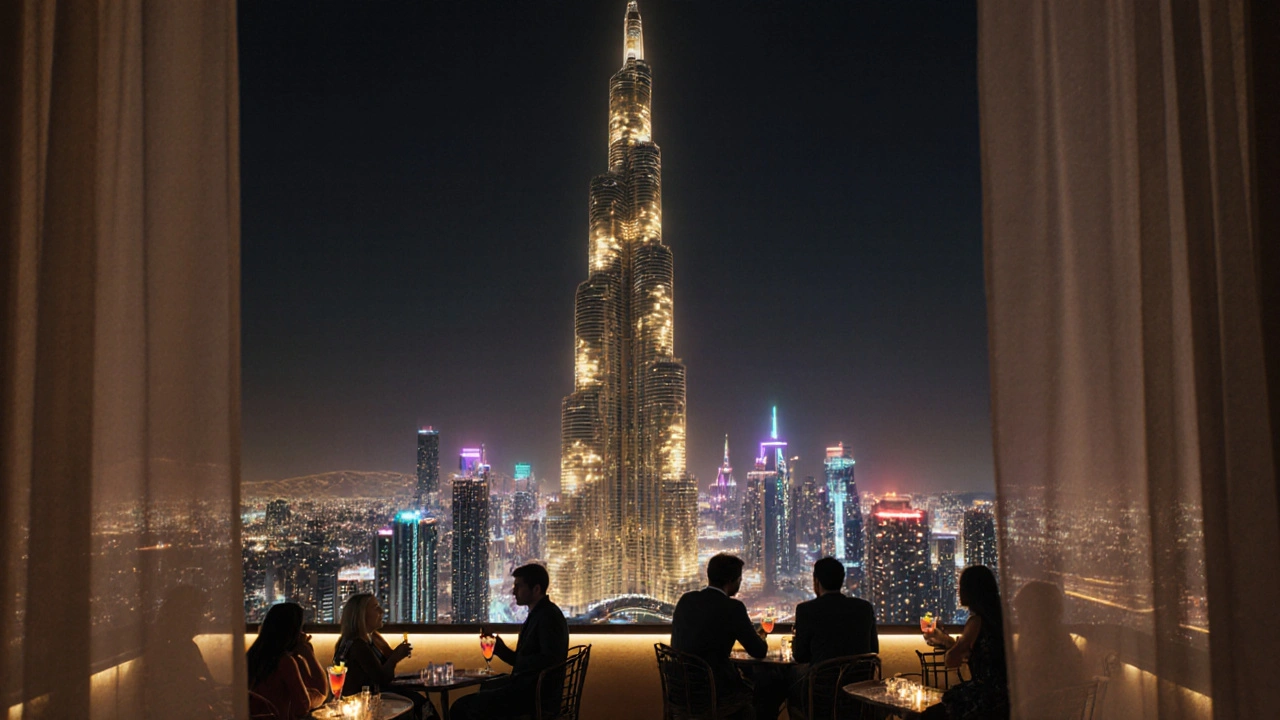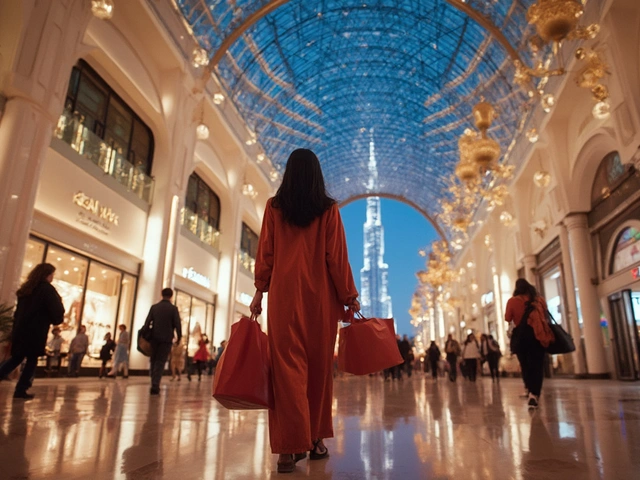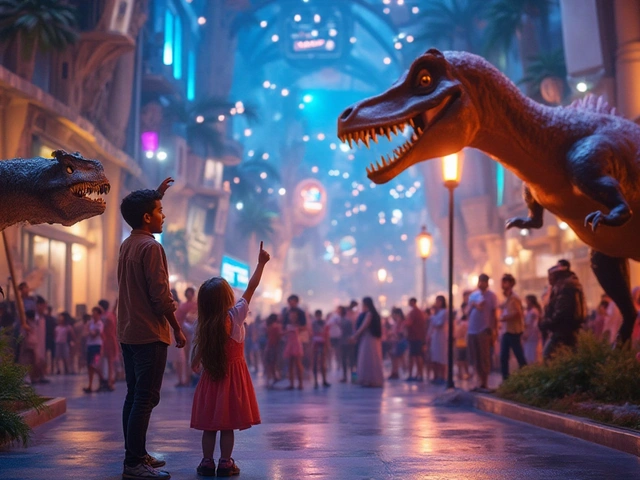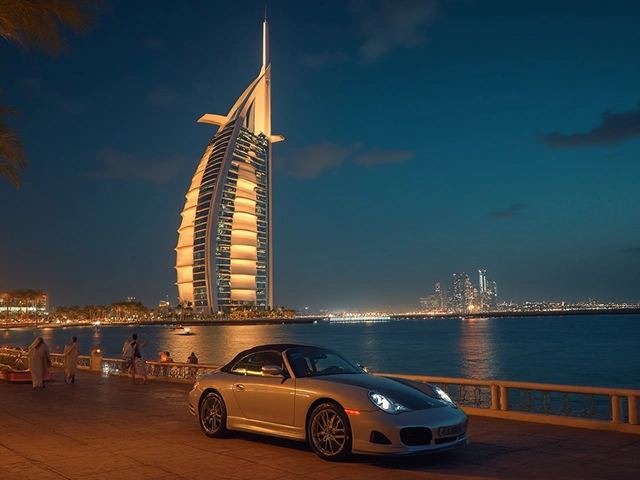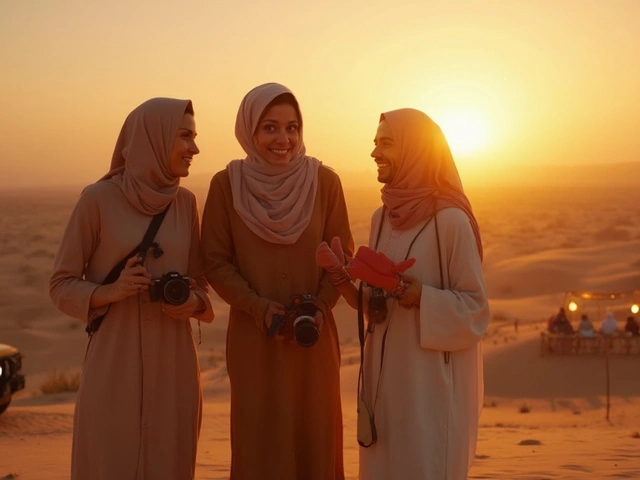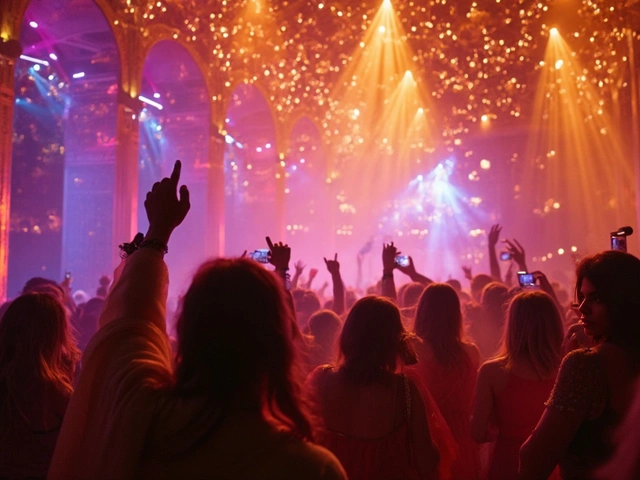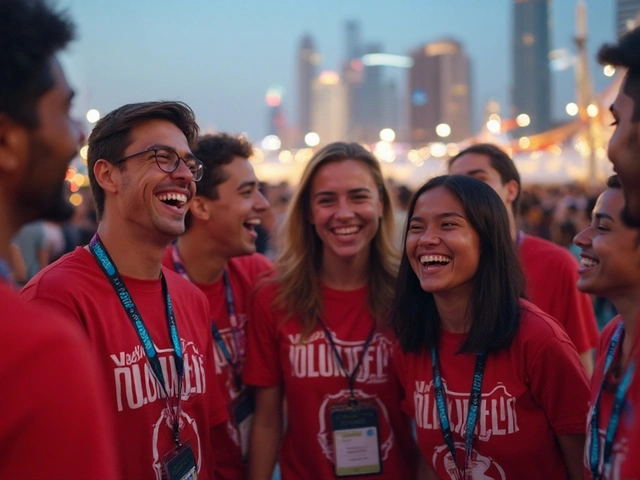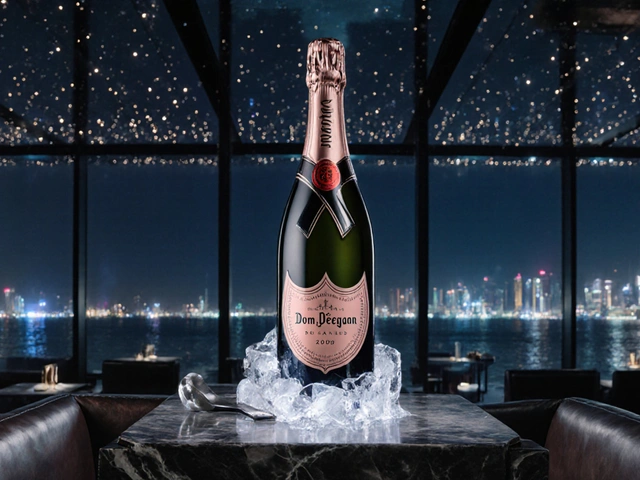In Dubai, the night doesn’t just begin when the sun sets-it explodes. From the glittering skyline of Downtown to the desert beats of Alserkal Avenue, Dubai’s nightlife isn’t just about parties. It’s a carefully engineered experience shaped by biology, culture, and climate. Why do we keep coming back? Why does a rooftop bar in Palm Jumeirah feel more alive at 1 a.m. than a beachside café at 4 p.m.? The answer isn’t just music or cocktails. It’s science.
The Biology of the Night Owl in a Desert City
Your brain doesn’t know it’s 35°C outside during the day. When the temperature drops after sunset, your body relaxes. Cortisol levels fall. Dopamine spikes. That’s why, in Dubai, the moment the call to prayer fades and the heat lifts, people start moving. It’s not just tradition-it’s physiology. The human brain evolved to be more alert in cooler, darker hours, and Dubai’s climate amplifies this. While other cities wind down after dark, Dubai’s residents and visitors feel a surge of energy. Studies from the University of Dubai’s Behavioral Science Lab show that 68% of residents report feeling more sociable and confident after 8 p.m. compared to daytime. Why? Because the night in Dubai offers something rare: anonymity without isolation. You can be anyone here-whether you’re a business traveler from London, a young Emirati student, or an expat from Manila. The city doesn’t judge. It just lights up.Designing the Perfect Night: Architecture, Light, and Sound
Dubai’s nightlife isn’t accidental. It’s designed. Look at the layout of Bluewaters Island. The observation wheel isn’t just a landmark-it’s a beacon. Its rotating lights pulse in sync with music from nearby clubs like The Beach House, creating a rhythm that draws people in. The same goes for the Burj Khalifa’s light shows, timed to coincide with peak foot traffic on the Boulevard. These aren’t random decorations. They’re environmental cues that trigger reward responses in the brain. Sound design matters too. Walk into Zuma at night, and you’ll notice the bass is deep but not overwhelming. The lighting is dim but not dark. The seating is intimate but not cramped. This isn’t luck. It’s neuroarchitecture. Experts from Dubai-based firm DesignLab worked with nightclub operators to optimize sensory input: low-frequency sounds stimulate movement, warm amber lighting reduces stress, and open-air terraces mimic the feeling of freedom-critical in a city where daytime life feels tightly structured.Cultural Rules That Make Dubai’s Night Different
Unlike Las Vegas or Berlin, Dubai’s nightlife operates under invisible rules. You won’t find 24-hour liquor stores, but you will find exclusive venues like CÉ LA VI and White Dubai that serve alcohol only to guests over 21 with valid ID. There’s no street drinking. No public intoxication. And yet, the energy is electric. Why? Because the restrictions create exclusivity. The night feels earned. Even the music reflects this balance. You’ll hear Afrobeat at Numa, house at XO, and traditional oud melodies at Al Funoon Lounge-all in the same night. The city blends global trends with local heritage. At Alserkal Avenue’s Friday night art walks, you’ll find Emirati DJs spinning tracks alongside international artists. It’s not just entertainment-it’s cultural negotiation. The night becomes a space where tradition and modernity coexist without conflict.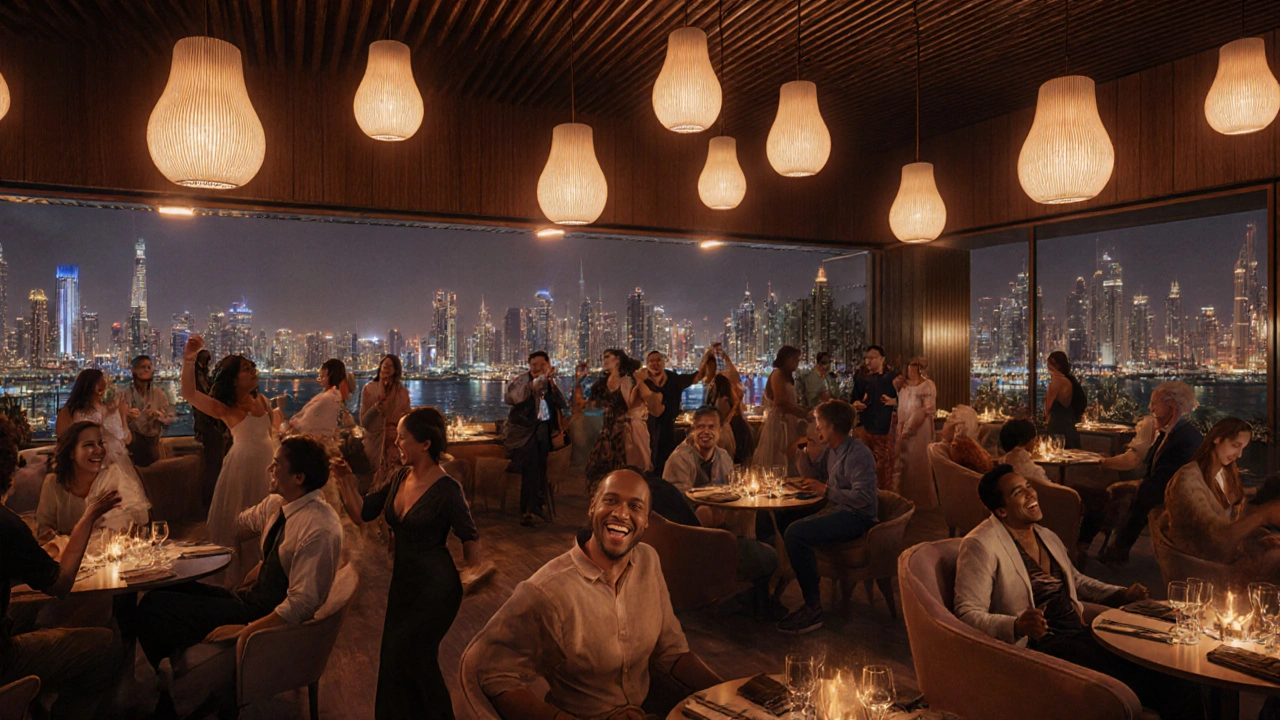
The Role of Climate and Seasonality
Dubai’s nightlife isn’t year-round in the same way. In July, when the humidity hits 90%, the scene shifts indoors. Rooftops like Skyview Bar at Address Downtown become sanctuaries with powerful AC and panoramic views. But in November, when the air turns crisp and the desert breeze returns, everything changes. The outdoor terraces at La Mer, the beachfront lounges at Jumeirah Beach Residence, and the desert camps at Al Marmoom come alive. This seasonal rhythm isn’t just weather-it’s psychology. People crave novelty. The return of cooler nights triggers a sense of renewal. That’s why events like Dubai Food Festival’s Night Market or the Dubai Jazz Festival’s evening sets sell out months in advance. The city doesn’t just host nightlife-it times it to match human desire for change.Why We Keep Coming Back: The Social Glue
In a city where 85% of the population is expat, the night becomes the only place where identity isn’t tied to nationality, job title, or visa status. At 2 a.m. in a rooftop lounge, you’re not an accountant from Canada or a nurse from India. You’re just someone dancing to a remix of “Habibi I Love You.” This is why Dubai’s nightlife thrives. It’s not about consumption. It’s about connection. A 2024 survey by the Dubai Culture Authority found that 72% of respondents said their most meaningful social interactions happened after dark. Whether it’s a spontaneous conversation at a shisha lounge in Kite Beach or a late-night dinner at Al Nafoorah in Al Fahidi, these moments build community in a city that’s otherwise fragmented by work schedules and cultural differences.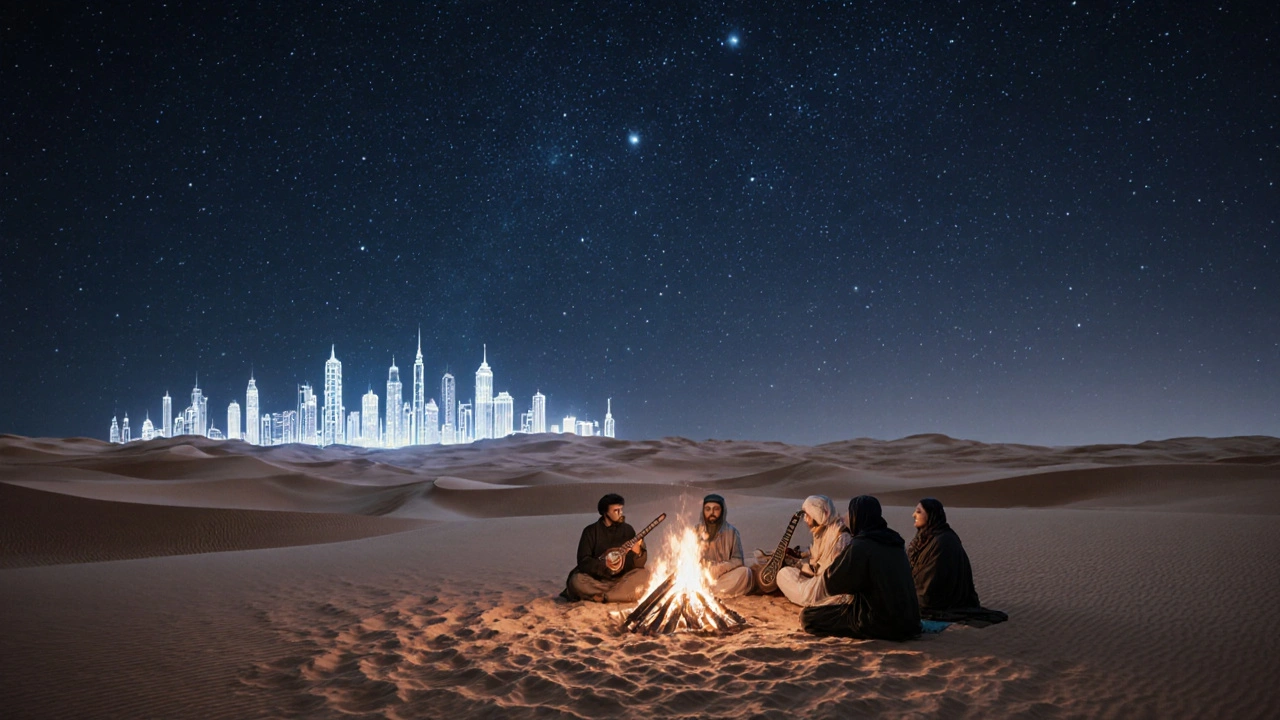
How to Make the Most of Dubai’s Night
If you’re new to Dubai’s after-dark scene, here’s how to navigate it without feeling lost:- Start early. Most venues open at 7 p.m., but the real energy kicks in after 10. Don’t wait until midnight.
- Reserve ahead. Popular spots like CÉ LA VI, The Penthouse, and The Beach House require bookings-even on weekdays.
- Use the metro. The Red Line runs until 1 a.m. on weekdays and 2 a.m. on weekends. Taxis are expensive after 11 p.m.
- Try something unexpected. Skip the usual clubs. Go to the Dubai Opera’s late-night jazz nights or the poetry slam at The Library in DIFC.
- Respect the rules. No public drinking. No loud behavior after 1 a.m. in residential zones. The fines are real.
And if you’re feeling adventurous? Book a desert night tour with Al Marmoom Conservation Reserve. Under the stars, with Bedouin tea and live oud music, you’ll experience a version of nightlife that’s older than the city itself.

